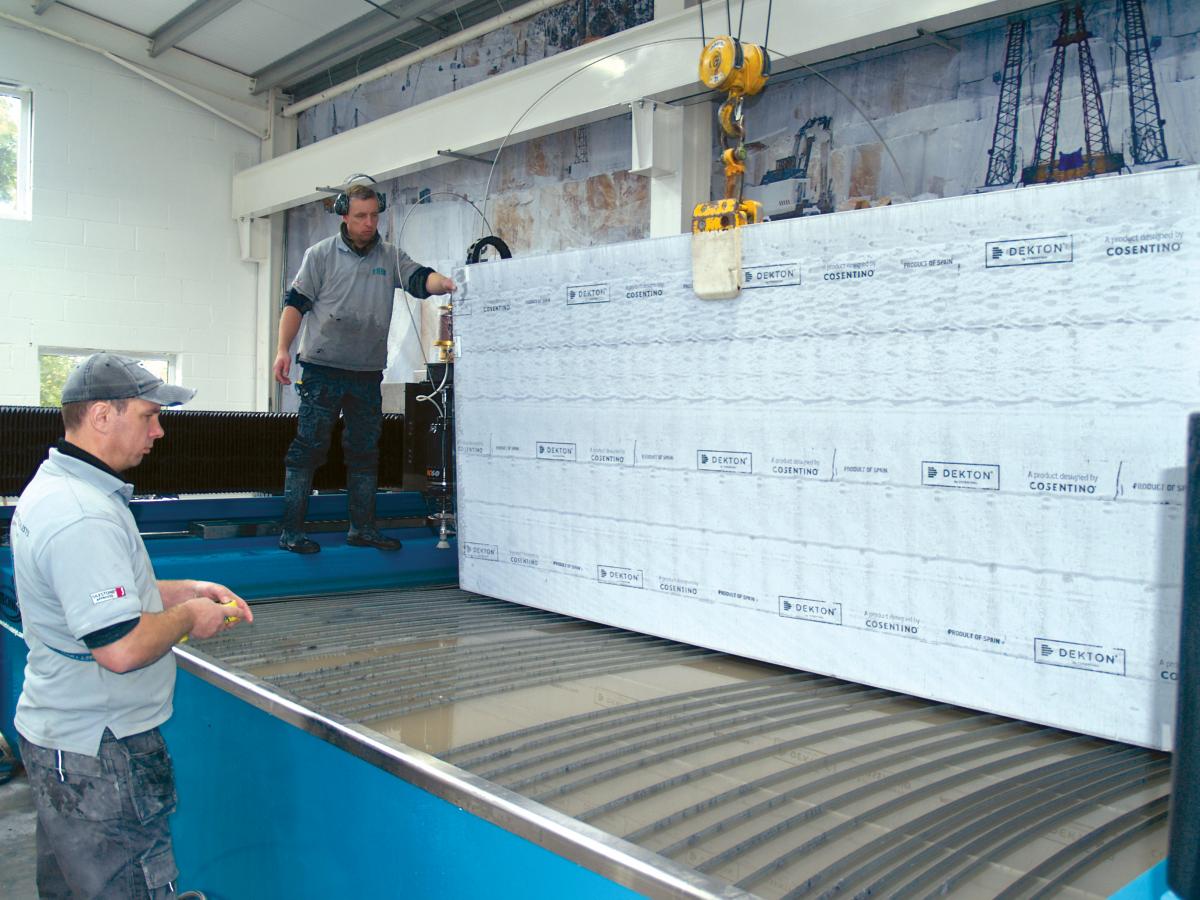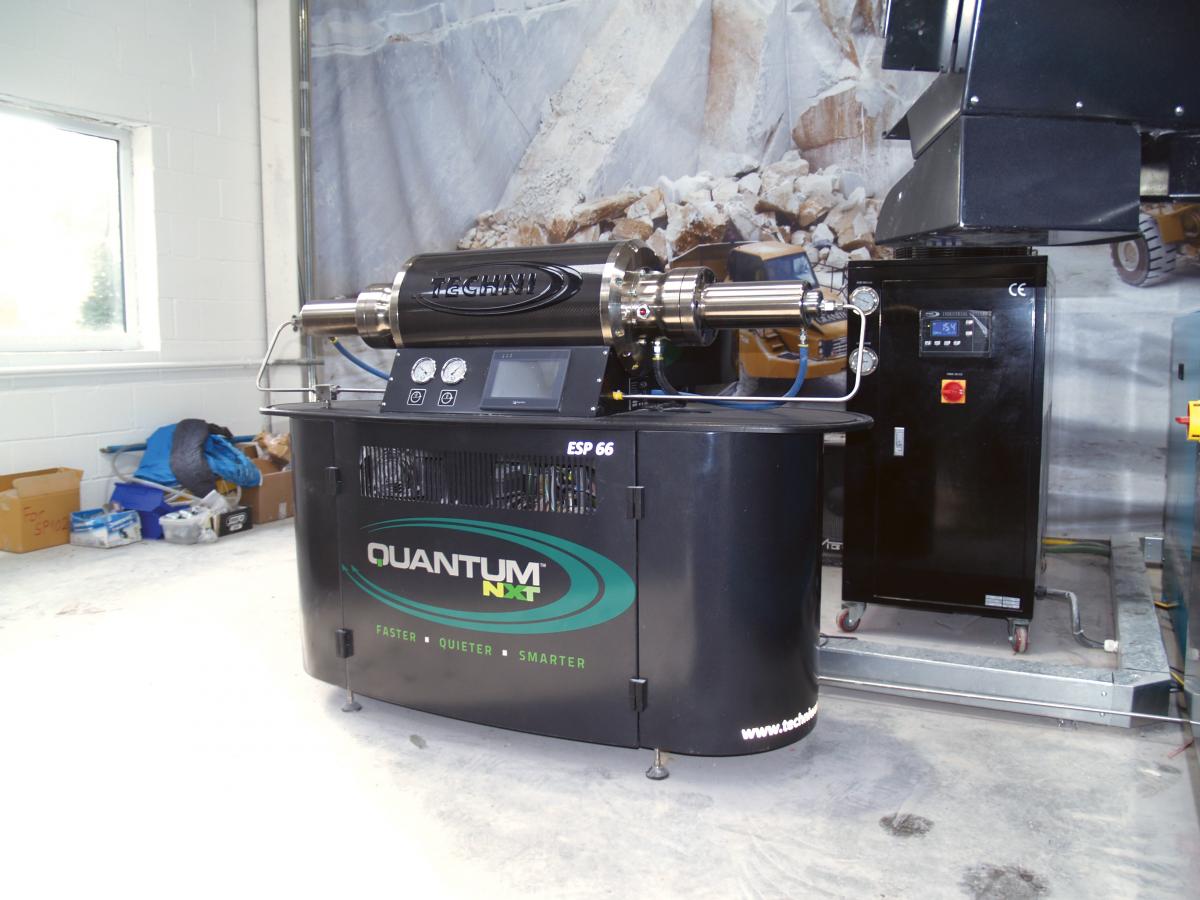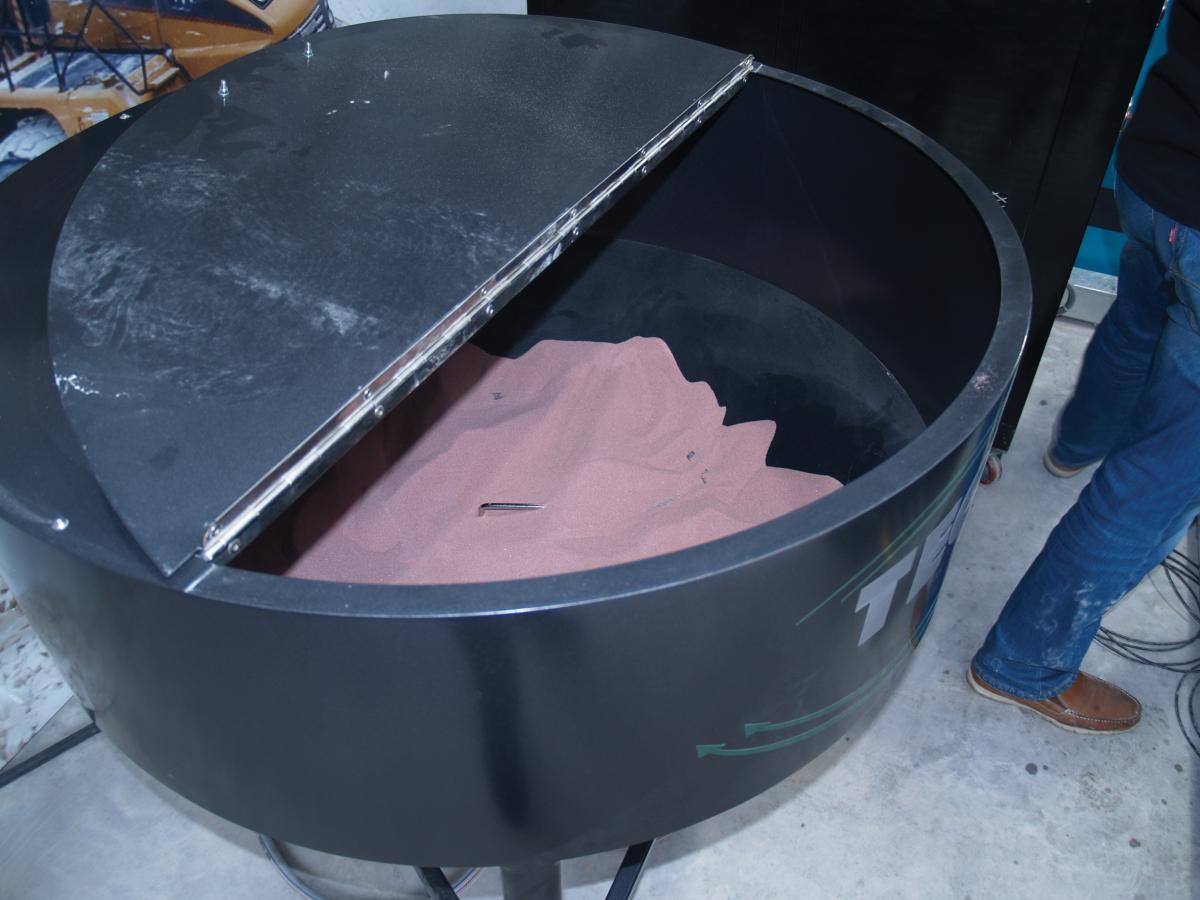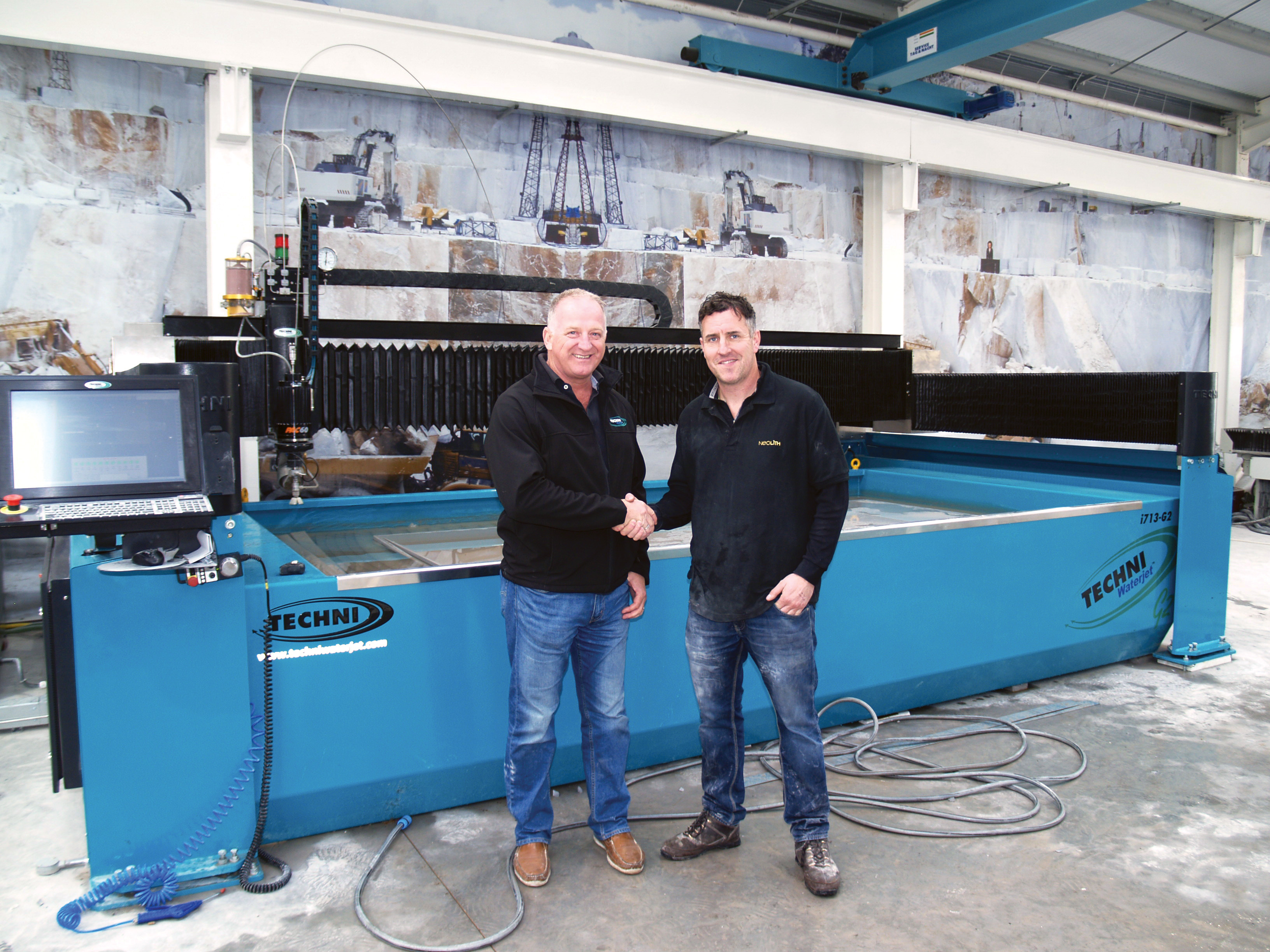Stone processing : Planet Granite chooses Techni waterjet cutting technology for new factory
When Steve Murphy was looking for machinery for his new Planet Granite workshop he turned to Techni in Australia for his waterjet cutter. Here he talks about the decision to buy a waterjet and why he chose Techni.
When Steve Murphy was looking for machinery for the new, 500m2 factory he was building for his business, Planet Granite, near Arley, Coventry, he had already decided it should include a waterjet cutter.
Steve is happy enough with the extra sales engineered quartz brings to his business, both for his own installations and the kitchen worktops he manufactures for the trade’s templaters and fixers. And he believes the new generation of superdense sintered products and porcelains, such as Dekton and Neolith, will bring him an even bigger share of the worktop market.
Nevertheless, although he has encompassed Cosentino’s Dekton enthusiastically, he has experienced how difficult it can be to cut, which helped him reach the decision last year to include a waterjet in his new workshop.
 And as well as cutting quartz, Dekton and Neolith, Steve is also cutting natural quartzite and granite. With the variety of natural and engineered stone he is using, he liked the idea that a waterjet can cut a whole range of materials without having to keep changing the tools being used, as is the case with bridge saws and workcentres.
And as well as cutting quartz, Dekton and Neolith, Steve is also cutting natural quartzite and granite. With the variety of natural and engineered stone he is using, he liked the idea that a waterjet can cut a whole range of materials without having to keep changing the tools being used, as is the case with bridge saws and workcentres.
One of the first materials Steve cut with his new waterjet was pumpkins to make Halloween lanterns – which is not as odd as it might sound because waterjets are widely used in food preparation.
Among the advantages of waterjets with natural and engineered stone is that they can cut tight, almost square inside corners and do not have to cut into a waste area to complete outside corners, maximising the finished product that can be obtained from each slab of material being used.
“It’s mega,” says Steve, standing next to his new waterjet as it cuts the outline of the worktop and then holes for the taps and sink in a Dekton surface destined for a domestic kitchen. The waterjet is so quiet he is perfectly audible talking at a normal, conversational level, which is another benefit of his waterjet he particularly likes.
The machine Steve has chosen for his workshop is a Techni, which will not be a name known to most companies in the stone processing sector in the UK, although it is familiar enough in other industries, especially glass processing.
Techni is an Australian company that has been around for 27 years, the past 19 of which it has been making waterjets. It has sold 850 of them worldwide in that time.
In the UK, Techni waterjets have been sold for the past seven years by Glass Machinery Solutions (GMS), which also sells Bavelloni CNC workcentres. It was thanks to the two Bavellonis Steve has that he was introduced to Techni waterjets.
When NSS visited Planet Granite to see the UK’s first Techni cutting stone, Glenn Langdon, Techni’s Sales Director from Australia, had also stopped off to see Steve. Glenn was on his way back to Australia from an exhibition in Hanover. Planet Granite was his introduction to the stone sector in the UK and he was interested to see how Steve was getting on with the machine.
It was Glenn who sold the waterjet to Steve. He told NSS magazine: “Glass Machinery Solutions knew Steve quite well and Steve allowed us to come to visit him when they asked if we could present the waterjet to him. I didn’t think there was a prospect for a sale because Steve had his mind set on a Combi. But I told him I thought if you have a saw and a waterjet together there’s a compromise. The next day he ordered a five axes i713-G2.”
This machine is in the Techni Intec range, which Glenn says is what stone processors in other countries typically choose. Techni says the Intec G2 series “represents the greatest value for money in the world of profile abrasive waterjet cutting”. It “lasts longer and requires less maintenance” while “delivering an easy to use, fast and accurate system at a very competitive price”.
The machines are manufactured in Australia, the USA and Thailand. Glenn says Planet Granite’s is mostly Australian with some components from Thailand.
One of the selling points for Steve was that Techni design and make all the major components themselves, or as Techni calls it, ‘total technology’. The company makes its own pumps and writes its own software, which includes systems analysis and internet connection with the makers in Australia. And Techni only makes waterjets.
The company is particularly proud of its pumps. It claims to be the first waterjet manufacturer using direct servo pumps (which it has patented) using technology first applied by NASA in the Space Shuttle programme. It says they are 60% more efficient than standard hydraulic intensifiers using 75% less water for cooling. They also use less power and oil and are particularly quiet.

Their big advantage is that they only provide as much pressure as is needed when it is needed, so when the waterjet is not cutting, the pump is in standby mode rather than sending power, water and money down the drain through a relief valve. The Techni uses about 180L of water an hour and half its running costs are accounted for by the garnet abrasive used in the cutting process – garnet normally costs in the region of £300-400 a tonne.
Techni also lays claim to having been one of the first to develop five axes waterjet cutting and to have produced a head that could rotate through a full 360deg.
And it is proud of its stainless steel band drive system, which it incorporated in the first waterjet it made and has used ever since. Most bridge drives use a ball valve but Glenn says Techni’s stainless steel band is ‘bullet proof’ for reliability and when it needs changing it takes 30 minutes, reducing maintenance downtime, and costs just £150.
Steve is delighted with his new workshop, the inside walls of which he has decorated with pictures of a marble quarry for the benefit of those customers who like to see where and how their worktops are being made.
The factory created three new jobs, bringing Steve’s workforce up to 10, and opened just in time for one of Planet Granite’s busiest pre-Christmas seasons ever.
The work going through the factory included £8,500 worktops for a UK customer’s house in the French ski resort of Morzine, near Geneva. Planet Granite’s templaters and fixers flew out to the resort to measure up and fix the worktops.

